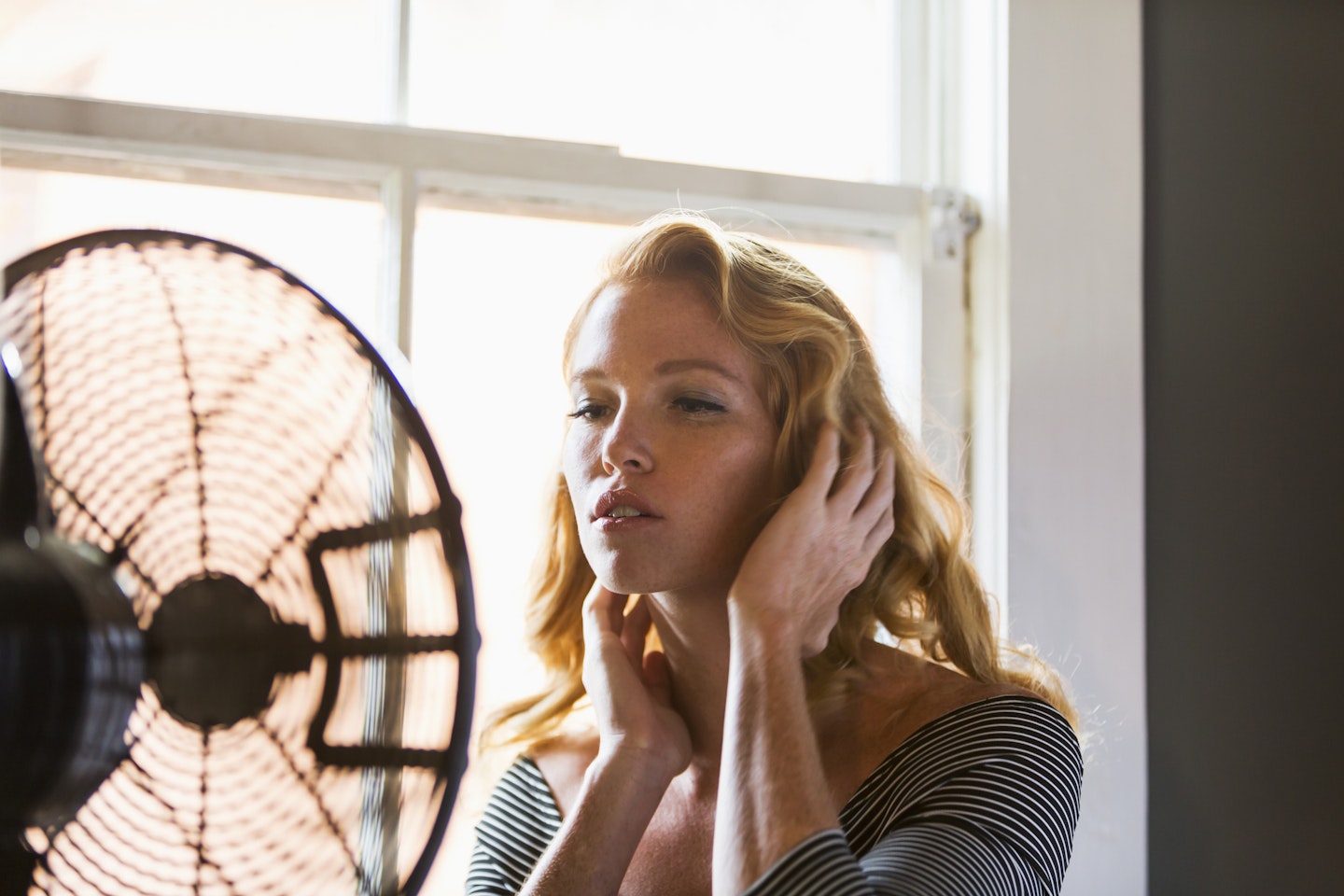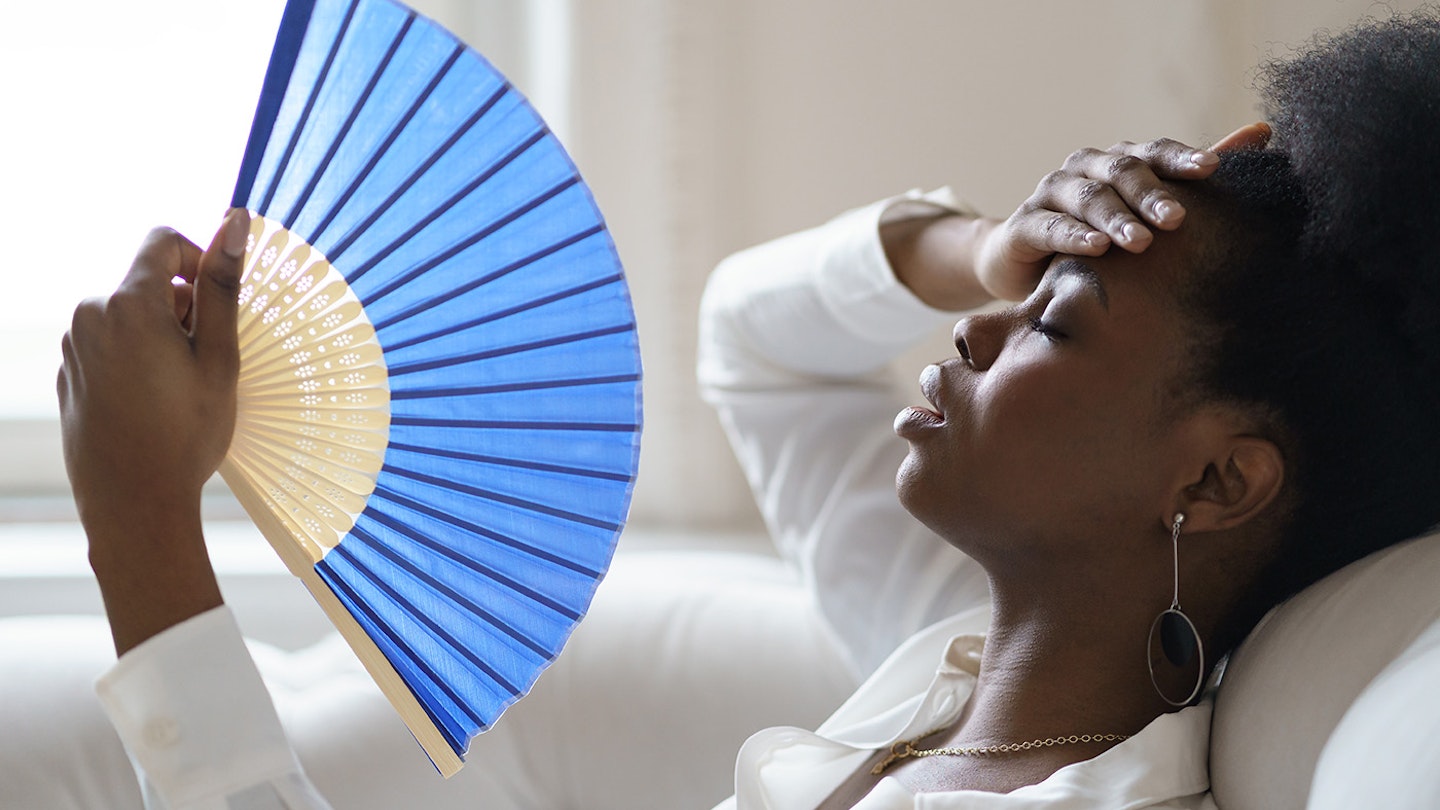"Early menopause is when a woman’s ovaries stop making certain hormones such as oestrogen before the age of 45, therefore resulting in their periods stopping. This is sometimes called premature ovarian failure or primary ovarian insufficiency,” says Dr Martin Kinsella, a hormone expert at BioID.
One in every 100 women under the age of 40 will experience this and it’s an incredibly difficult time for a lot of women, especially for those who do want to have children.
“The cause of premature ovarian failure is often unknown but can be caused by a number of things such as autoimmune disease, certain infections and chromosome abnormalities,” says says Dr Kinsella.
“Peri-menopause is the term used to describe the period around menopause, and is usually used when referring to the transitional phase or initial stages of menopause. Early menopause on the other hand is when you stop menstruating before the age of 45.”
Here’s everything you need to know about the early menopause, from the signs to look out for to the treatments available.
What are the symptoms of early menopause?
‘There are a large number of signs of early menopause, however the main symptom is periods becoming irregular and then stopping or feeling period pains but no period. Other symptoms include hot flushes, night sweats, vaginal dryness, mood changes, problems sleeping, low sex drive, fatigue, changes in weight gain.'
If you think you may be going through the menopause early, contact your GP. They will be able to carry out blood tests to check your hormone levels, assess your family history and symptoms.
Why does the menopause occur early for some women?

The primary cause of premature ovarian failure or early menopause is unknown, but Dr Kinsella says sometimes it can be hereditary. “Sometimes it runs in families, so if your relatives went through the menopause in their 20s or 30s then you’re more likely to. However, in some women it can be caused by any of the following:
• An autoimmune disease which causes the immune system to attack the body tissues.
• Turner syndrome
• Infections such as TB, Malaria and mumps, although this is very rare.
• Cancer treatments such as chemotherapy and radiotherapy, in which case premature ovarian failure may only be temporary.
• Surgery to remove the ovaries.
Typically black and Latina women enter the menopause earlier and tend to experience more severe symptoms. It’s also thought that early menopause could be associated with smoking.’
Can it affect my ability to have children?
‘Experiencing menopause early can be extremely distressing and, if permanent, can affect your ability to have children naturally," confirms Dr Kinsella. "You may still be able to have children using IVF and donated eggs, or using your own eggs if you had stored some.’
Adoption, fostering and surrogacy are also options you may wish to consider.
Treatments available
Dr Kinsella explains there are a number of effective treatments for women experiencing the early menopause: “This could be; the combined contraceptive pill, HRT or in most cases Bio-identical hormone replacement therapy can help to re-balance the hormones and reduce symptoms.’
However the NHS states that if you’ve had certain types of cancers, you may not be able to have hormonal treatment.
What should I do if I think I'm going through the early menopause?
‘If you’re concerned you may have it or have been diagnosed then I would advise looking at lifestyle factors which can help, such as weight, diet, and alcohol and drug consumption," says Dr Kinsella. "I would also advise seeking expert medical advice in order to find the right treatment that works for you. A blood test can identify if you are going through the early menopause and then suitable treatment sought.'
Support available
There are a number of great couselling and support groups available for women going through the early menopause.
• The Daisy Network - a charity providing support and information to women with POI.
• Human Fertilisation and Embryology Society - provides information on fertility treatments available.
• Adoption UK - a charity for those looking to adopt children.
